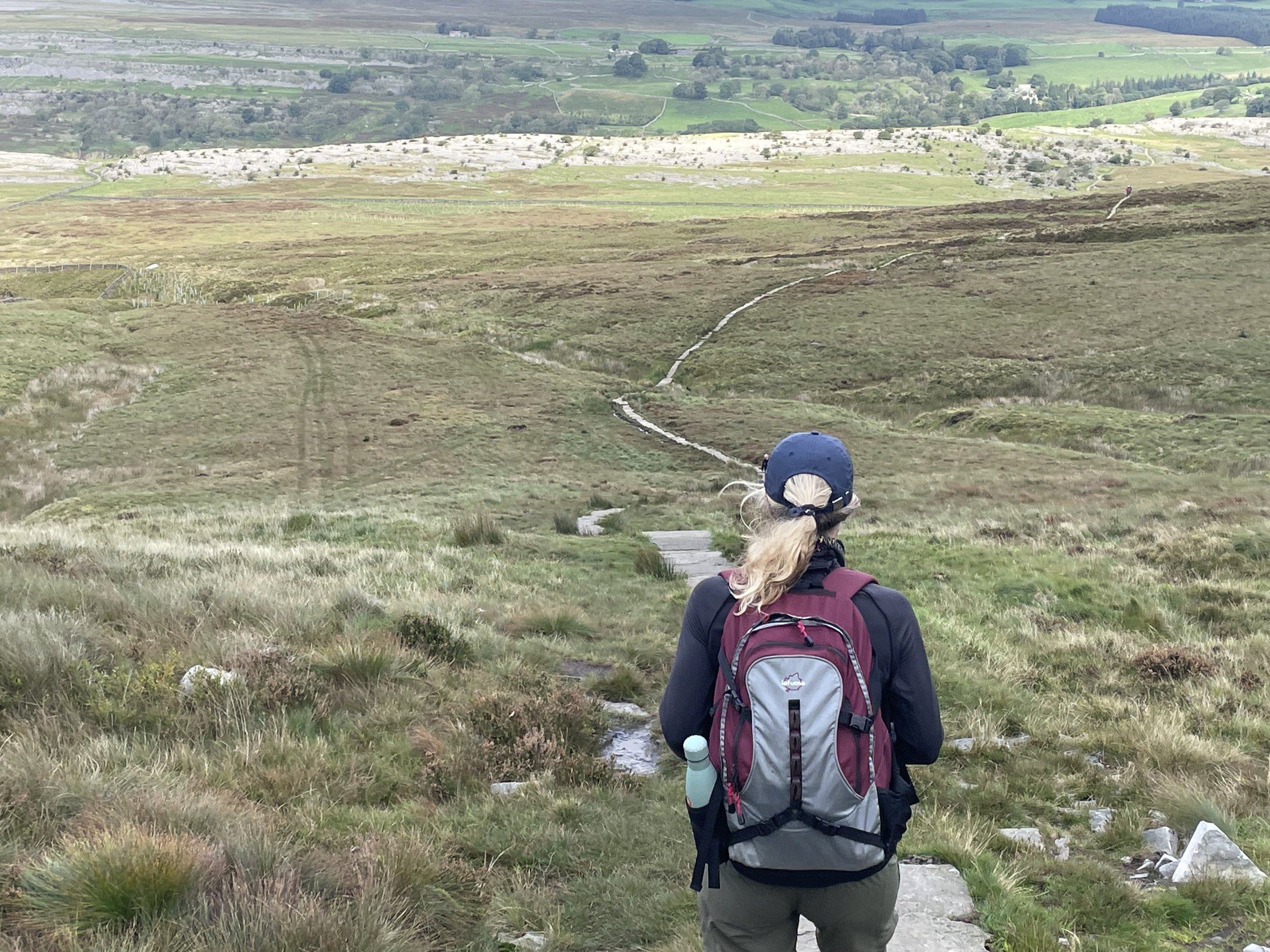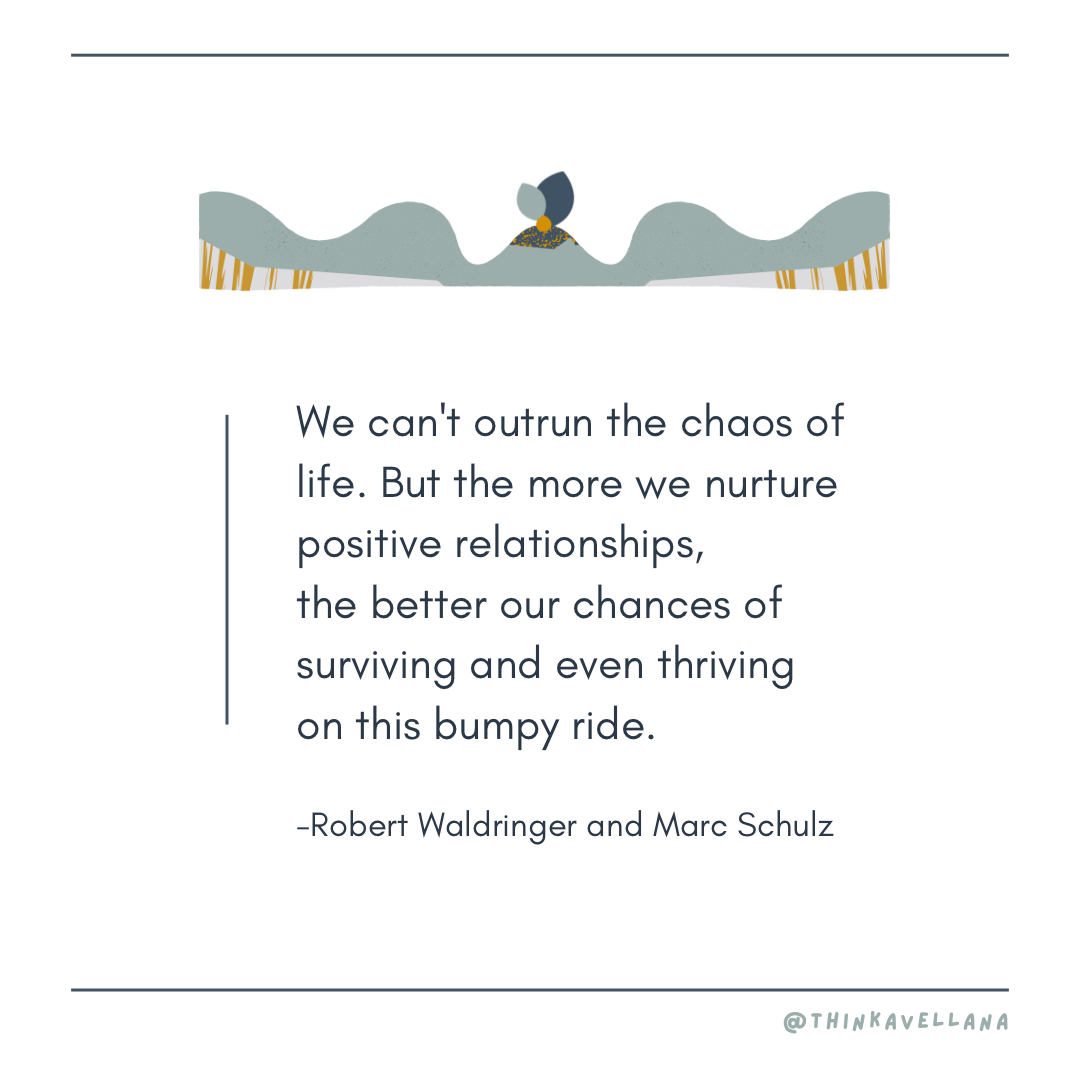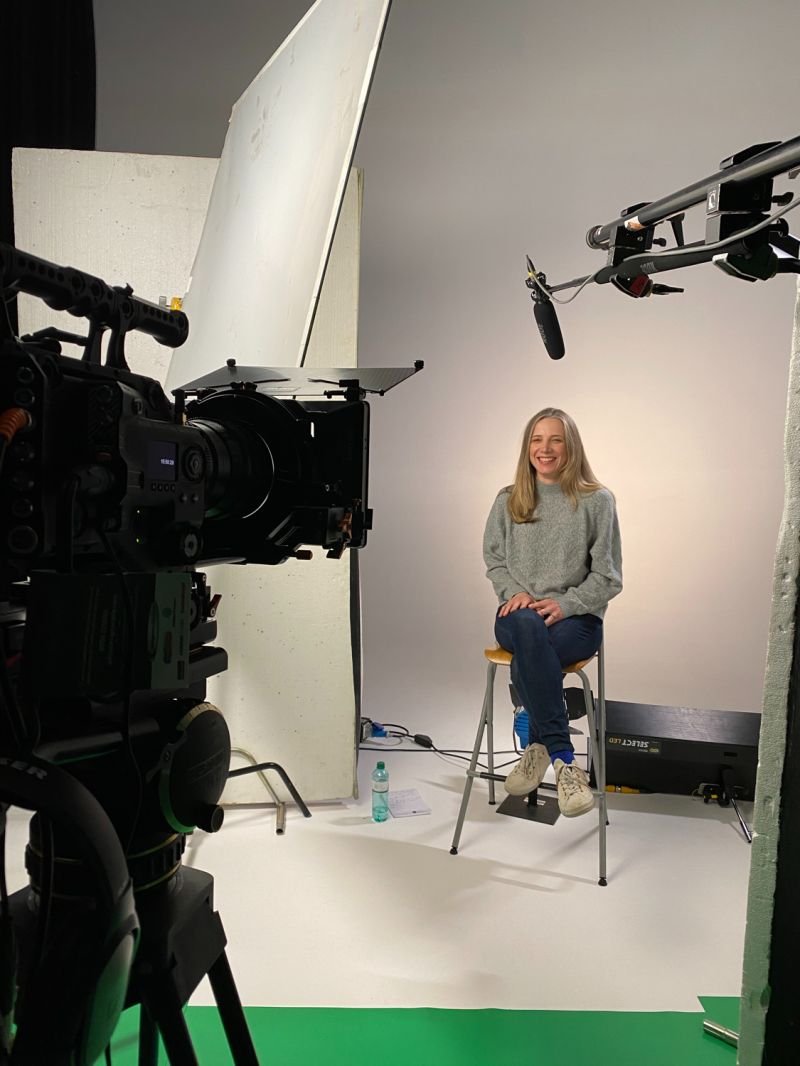I have this screen print by Eileen Revett hanging in my house. It’s titled “Infinite Possibilities”.
At first glance you might think it’s a repeating pattern but on closer inspection you’ll notice that every set of shapes is slightly different.
2024 offers infinite possibilities, things you’ll say “hell yes” to, things you’ll say “no way” to.
Each choice you make will change the pattern for what comes next.
It reminds me of my favourite quote from James Clear -
“Every action you take is a vote for the type of person you wish to become. No single instance will transform your beliefs, but as the votes build up, so does the evidence of your new identity. This is one reason why meaningful change does not require radical change. Small habits can make a meaningful difference by providing evidence of a new identity. And if a change is meaningful, it is actually big. That’s the paradox of making small improvements.”
You don’t have to start the year feeling overwhelmed by the need for radical change. Make a small adjustment to the pattern and watch the infinite possibilities unfold.
Embedding Wellbeing into our Lives
The moments you can't write into a keynote are sometimes the most powerful.
Just as I was talking about awe and nature connectedness at the Society of Heads conference this amazing sunset appeared. So we stopped, everyone got up from their seats in conference room and we stood on the balcony on watch the sun set.
The science of wellbeing is important and when we join that with actually experiencing it - that's when we really start to embed wellbeing into our lives, our schools, our families, our organisations, our communities...
Thanks Ben Noble for sending me this photo. And thanks to all the Heads for your time, your curiosity and your warmth.
Life Lessons in Hiking
Three things I learned (and relearned) from hiking the Yorkshire three peaks last weekend:
Sometimes it works out well when you don’t take the route you planned.
Getting to the top isn’t nearly as exciting as the process of getting there.
Doing something hard is so much easier when you’re not doing it on your own.
Invest in Your Relationships
What can we learn from the world's longest study on happiness?
- Life is complicated.
- Sometimes the things we imagine will make us happy, don't.
- Our relationships are the biggest predictor of our happiness.
Don't leave your relationships to chance. Invest in them.
Thank you Robert Waldinger - when I get to the end of your beautiful book, I will go back to the start and read it again.
THE COMFORT ZONE IS A BEAUTIFUL PLACE
3 years ago I filmed my first series with the BBC - The Brain Lab.
We explored the key themes of wellbeing including growth mindset.
When this photo memory popped up on my phone, it reminded me how much the whole filming experience was like a growth mindset experiment. There was so much I didn’t know how to do.
🎬Filming in a studio was new to me.
🎤Reading naturally from an autocue was new to me.
🔥Keeping energised after “Take 5” was new to me.
I felt out of my comfort zone and I really did learn a lot!
Step out of your comfort zone occasionally.
Try to find lightness when it doesn’t go to plan.
Surrounded yourself with people who want you to do well.
“A comfort zone is a beautiful place but nothing ever grows there.”
#growthmindset
Want a little mood boost for your Friday?
Want a little mood boost for your Friday? Recent research has found that carrying out 'prosocial' behaviours (any behaviour with the goal of benefiting another person) can boost mood and wellbeing for the individual performing the action as well as the recipient. One really simple prosocial behaviour is to express genuine appreciation to another person.
"When it comes to giver cultures, the role -modelling lesson here is a powerful one: if you want it, go and give it." - Adam Grant
#wellbeing #gratitude #mood
Growing Together - Children's Mental Health Week 2022
This week, for children’s mental health week, I’ve been sharing simple ways we can support children with their mental health and “grow together.”




















How to learn (and fail) like a skateboarder
How can we shift our mindset to understand that failing is a normal part of learning?
Coping With Change
My latest project with the Premier League explores how transitions can impact on our emotions, and what we can do to help the change process go as smoothly as possible.
Build Back Better
Living through the pandemic will have presented us all with challenges but it may have also created an opportunity to reflect on our lives and how we want to live them.
So how do we make sure we hold on to these important lessons and embed them into our daily lives?
"How to Build a Life" - is a brilliant column by Arthur C. Brooks in The Atlantic. This week he talks about the 'Once-in-a-Lifetime Chance to Start Over' and how we can prepare for a better normal.
Arthur recommends drawing a matrix and reflecting on the things we like and dislike from our pre pandemic and pandemic lives. And then making a plan for what we'll keep and what we'll leave behind.
I really liked this idea. I made a matrix for anyone who wants to give it a go...
Kindness and Football
Navigating New Challenges
Aritcle orginally published Prep School magazine - Autumn 2020
Children's Wellbeing During Lockdown
I’ve been working with Motion Alley to create short animations called “Life In Lockdown” to help explore wellbeing themes with children.
Here’s Episode One, where I talk to SK8TR Boy about the things he’s missing and how he’s using his imagination to help him.
In Episode Two, Rainbow Girl tells us why it’s good to find ways to express your emotions.
Five ways to support children’s mental health
Here’s an article I wrote recently for the BBC about simple ways families can take care of their wellbeing.
BBC Teach - Growth Mindset and Wellbeing Lesson #BBCLiveLesson
If you missed the live stream for the Growth Mindset and Wellbeing lesson, you can watch it again on the BBC Teach homepage, on the BBC iplayer or on the TES YouTube channel.
Click here to watch the interview.
World Mental Health Day with BBC Newsround 2019
BBC TEACH - GROWTH MINDSET AND WELLBEING LIVE LESSON
Delighted to be working with BBC TEACH to deliver this really exciting Wellbeing lesson to 7-11 year olds on World Mental Health Day (10th October, 2019). Click here to find out how your school can get involved.
5 Ways To Shrink Your Critical Critter
Somewhere, inside us all, hides the CRITICAL CRITTER - a rather scary, hairy and un-fairylike creature. The Critical Critter is fed on a diet of negative self-talk and unkind, unsupportive words from others. Each time we chew on harsh and unjustified criticism, it’s like giving the critter another burger to munch on.
And then, one day, we notice that the Critter has grown - and started throwing it's weight around. In fact, the Big C is bossing everyone in the brain house; bullying them, even. You see, the Critter is making frequent visits upstairs to tell the thinking characters that they’re wasting their time.
Not content with that, this dastardly doubter is also lurking downstairs and telling Fearsome Fred that he’s right to panic and flip the lid, because it’s all going to go wrong. And when it does, insists the Critter, Fearless Fred will be to blame because he’s useless. We. Are. Useless.
The Critter in Action
What else does the Critter do? Well, on sports day - aged 7 - our internal critic sits on the sidelines and bursts into fits of self-incriminating giggles when we trip over in the running race.
Aged 16, it hides under the exam desk and repeatedly whispers ‘Hey thicko - you’re gonna fail at this!’ When it’s time to leave education and think about a career, the Critter starts a chorus of ‘You’ll never do it; you’re not going to make it; you’ll never amount to anything.’
In short, the CRITICAL CRITTER makes us feel rubbish about ourselves. It makes us give up when things get tough. It makes us feel sad and miserable. But we can fight back…
5 ways to shrink the Critter
If your Critter has grown bigger, scarier and hairier recently, it’s time to put it on a crash diet - here’s how:
1. Give your Critter a name: This may sound a bit daft, but separating your inner critic from yourself is a great way to give you the space you need to notice what it’s saying, quieten it down and tame it. Call it anything you want - just make it memorable.
2. Take the Friends and Family Test: Whenever you notice your Critter speaking negatively, ask yourself: “Would I speak like this to my best friend or closest family member?” If the answer is “no”, then don’t allow it to speak to you that way - be your own best friend.
3. Answer back: You may have been told as a child that it’s rude to answer back - but this isn’t the case with Critters. You need to boss them about, just as they’ve been bossing you, to make them shrink. So when you hear Critter chanting ‘This’ll never work, you’ve always been useless at this’, answer back. Use these sentences and your Critter will be eating broccoli for a week!
“That’s enough out of you Critter - I’m doing my best”
“I can’t hear you Critter, I’m too busy being amazing over here”
“Maybe it didn’t work this time Critter, but I’m giving it another go”
4. Call for Back Up: If the Critter is firing out harsh words when you’re working hard to try and master something or reach a goal, prove it wrong (and keep it quiet) by trying again. Maybe you’re doing a Couch to 5K running programme, trying your hand at knitting, or learning how to boil an egg - whatever it is, seek the advice and support of people who have done it before. If you surround yourself with those who say “You can” then it’ll be harder for your Critter to keep yelling at you to give up. And soon, it will stop shouting ‘You can’t’ and sit quietly in a corner chomping on an apple.
5. Strengthen yourself: Being under attack from the Critter is tough and, for some people, can feel relentless. It can make us question ourselves, our parenting skills, our ability to do our job… everything; even whether we should get out of bed. To cope with this relentless criticism, it’s important that we find things about ourselves that we like. Each day, make time to notice the things - no matter how small they are - that went well BECAUSE OF YOU. And don’t be surprised if your Critter laughs with contempt at your first try at a list. Use the tips above to wipe the smile off its face - and put one back on your own.
Day 4: Be Kind - Children's Mental Health Week #childrensMHW
Day 4 - Be Kind
This week it’s Children’s Mental Health Week (#childrensmhw) and, at ThinkAvellana, we’re sharing simple ways to boost wellbeing in children. We hope parents, grandparents, carers, teachers - and anyone else who cares for children and young people - will find them useful.
Kindness is a win-win for wellbeing. The research shows us that when we’re kind to others, we not only boost each recipient’s wellbeing; it tends to have the same effect on our own sense of wellness too. Being kind can help us connect with others, and our relationships play a crucial role in our mental health and wellbeing in the long term.
There are hundreds of ways children and adults can show kindness - every day. And it can be fun to sometimes turn these acts into larger events, to really emphasise their importance and value.
1) Wear a “kindness cape”
Younger children often love pretending to be superheroes, from SpiderMan to WonderWoman. So they’re also likely to enjoy wearing an imaginary ‘kindness cape’ and working with adults and peers to do superhero acts of kindness. These could be at school, at home or in the community. You can use these opportunities to talk about why it’s important to be kind - to others and to ourselves.
2) Give something
Encourage children to consider donating toys or clothes they’ve outgrown to a charity shop. Involve them in the process, right from choosing what to give through to taking it to the shop. Talk to them about how they’re helping others due to the charity’s work, and helping the planet by recycling rather than adding to landfill.
3) Start fundraising and volunteering
For older children, connecting kindness to something they’re passionate about can be a great way to get them involved with their community and boost their wellbeing. They can do this through organisations like Step Up To Serve (#iwill), which aim to get young people involved in social action opportunities in the community.
We’d love to hear how you’ve found to boost kindness in children and young people - whether through superhero acts of kindness, charitable donations, or community service. Share your stories, or simply connect with us, on our Facebook page.
Day 3: Be Mindful - Children's Mental Health Week #ChildrensMHW
Day 3: Be Mindful
This week it’s Children’s Mental Health Week (#childrensmhw) and, at ThinkAvellana, we’re sharing simple ways to boost wellbeing in children. We hope parents, grandparents, carers, teachers - and anyone else who cares for children and young people - will find them useful.
Our minds can be very busy, getting pulled into thinking about the past or worrying about the future. Finding ways to focus on what’s happening in the present moment is another way to build your child’s wellbeing.
Here are three different ways to help children develop their mindfulness skills, which will probably work best if you join in too (especially if it’s younger children involved).
1) Draw for 10 minutes
Give everyone a pencil and paper, set a timer for 10 minutes, and draw something you can see. Bring your attention to the shapes, colours, and patterns. Look at the object from different angles. Challenge older children to see if they can spot when their mind’s wandering (or wondering!) and bring their attention back to the drawing. This activity isn’t about how ‘good’ or ‘bad’ the drawing is, it’s about whether you can focus on the activity and bring your attention back when it wanders.
2) Take a bear for a ride
Younger children may enjoy this simple mindfulness technique for bringing attention to their breath. Ask your child to find their favourite small soft toy. Lay flat on the floor and invite them to put the soft toy on their tummy. Set a timer for two minutes, and ask them to watch how the toy moves up and down as they breathe in and out. This simple act of noticing the movement allows your child to remain “in the moment” for more than one moment.
3) Train the “puppy mind”
Older children (and adults) might enjoy watching this video from the Mindfulness In Schools Project. It’s a 10-minute mindfulness practice that uses a fun and playful animation.
If you’ve got other mindfulness based activities that work for you, your family or school, we’d love to hear about them. Join the wellbeing conversation on our Facebook page.
We’ve been sharing other ways to boost wellbeing in children on our blog here.








































